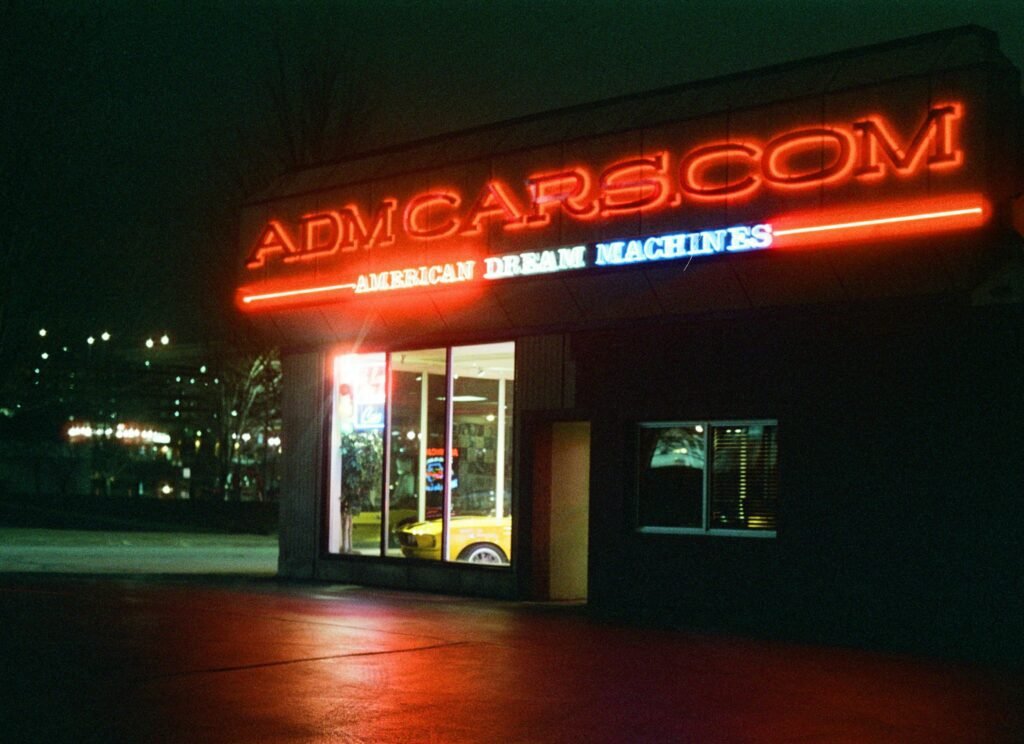How Millennials Are Disrupting the Automobile Industry?

For decades, the automobile industry operated on a familiar playbook: marketing a car as a status symbol, a rite of passage, and a long-term commitment. This model, however, is being completely upended by the largest and most influential consumer demographic in the market: Millennials.
Understanding Millennials car buying trends 2025 is crucial for anyone looking to succeed in this evolving market.
Understanding Millennials car buying trends 2025 is not just a trend; it’s essential for adapting to the future of the automobile industry.
As a veteran with 16 years as a Finance Manager, Director, and General Sales Manager at Acura and Mazda dealerships, I’ve had a front-row seat to this disruption. The millennial buyer isn’t just a new customer; they represent a fundamental shift in values, priorities, and buying behaviors that are forcing dealerships and manufacturers to rethink everything.
This exploration of Millennials car buying trends 2025 will uncover key factors influencing their decisions.
This post will explore how this generation is reshaping the industry—from their research habits to their financing preferences—and what this means for the future of car ownership.
Understanding the Millennials car buying trends 2025 is vital for developing effective marketing strategies.
1. The Digital Revolution of Car Buying

The Millennials car buying trends 2025 show that their preferences are reshaping market dynamics.
The traditional dealership model was built on the in-person experience. The millennial model is built on the opposite. This generation’s car-buying journey starts and is heavily influenced online.
These Millennials car buying trends 2025 highlight the importance of integrating online and offline experiences.
- Online Research is King: Millennials spend an average of over 17 hours researching before a purchase. This research isn’t done in a showroom; it’s done on third-party websites, social media, and review platforms. In fact, a recent study shows that 77% of consumers use dealership websites as a key digital touchpoint.
- A “Hybrid” Approach Dominates: While 75% of consumers expect the car-buying process to feel like other online shopping experiences, only a small minority (around 5%) complete the entire purchase digitally. The majority prefer a hybrid journey, with research and financing done online, and the test drive and final paperwork completed in person.
- Demand for a Seamless Experience: This generation expects a seamless transition between online and offline. My time in dealership management showed me that if a customer couldn’t pick up their online conversation in the showroom, you were already at a disadvantage. This is why tools and platforms that allow for online credit applications, digital signatures, and virtual consultations are no longer a luxury—they are a necessity.
2. Technology & Values Drive the Purchase
For Millennials, a vehicle is a tool for life, and its value is measured by more than just its engine.
Furthermore, the Millennials car buying trends 2025 indicate a growing interest in sustainable options.
This tech-first mentality reflects the broader Millennials car buying trends 2025 that prioritize innovation.
- Sustainability Over Status: Millennial consumers are more environmentally conscious. They are driving the surge in demand for fuel-efficient vehicles, hybrids, and EVs. As a former finance director, I’ve seen a dramatic increase in questions about charging infrastructure, battery longevity, and government incentives for EVs. For example, EV leasing has increased by 45% among millennials, largely due to federal tax incentives.
- Tech-First Mentality: Millennials grew up with smartphones and advanced tech. Their expectation for in-car technology—like advanced infotainment systems, safety features, and smartphone integration—is non-negotiable. They are also more comfortable with new technologies like AI tools, with 17% of 18-43 year-olds using AI tools during car research in 2025.
- Safety as a Priority: This generation, many of whom are starting families, places a huge emphasis on safety features. They are less swayed by raw horsepower and more by ratings, accident prevention systems, and connectivity.
As safety becomes a priority, the Millennials car buying trends 2025 will continue to evolve.
3. The Impact on Dealerships and Financing

This shift in consumer behavior isn’t just changing what cars are sold, but how they are sold and financed.
The rise of leasing is one of the key Millennials car buying trends 2025 that dealerships must understand.
The Millennials car buying trends 2025 indicate a demand for more transparent purchasing processes.
As they dominate the used car market, Millennials car buying trends 2025 reflect changing consumer behaviors.
- The Rise of Leasing: Millennial buyers are increasingly drawn to leasing, which now makes up a significant portion of their new car purchases. Lower monthly payments and access to the latest technology without the long-term commitment of a 72-month loan align perfectly with their financial habits.
- The Decline of “The Squeeze”: Traditional, high-pressure negotiation tactics are a major turn-off for this generation. They prioritize a convenient, transparent, and personalized experience, and are willing to pay more for it. My time on the sales floor taught me that the old playbook doesn’t work; you have to adapt to a consultative, value-driven sales process.
- Challenges in the Used Car Market: The affordability crisis and rising new car prices have driven a large number of Millennials to the used car market, where they are now the most dominant demographic. As a result, the used car market has become highly competitive, with a growing demand for pre-owned EVs and CUVs.
Thus, understanding the Millennials car buying trends 2025 is essential for future success in the industry.
Ultimately, the Millennials car buying trends 2025 will determine how dealerships adapt to new market realities.
In conclusion, Millennials car buying trends 2025 highlight the need for ongoing adaptation in strategies.
Explore our insights on Millennials car buying trends 2025 for more guidance in your journey.
Conclusion: The Future is Now
The millennial disruption of the automobile industry is about more than just a preference for a different kind of vehicle. It’s a holistic shift that prioritizes convenience, technology, transparency, and a different set of values.
For dealerships, this means the future belongs to those who embrace a digital-first, value-driven, and highly transparent sales model. For you, the millennial car buyer, it means your preferences are driving innovation and giving you more power than ever before. Understanding these trends isn’t just about being in the know—it’s about having the knowledge to secure the best deal in a market that’s finally starting to listen.
Ready to apply this knowledge?
Explore our guides on auto loans, credit, and negotiation to master your next car purchase.
